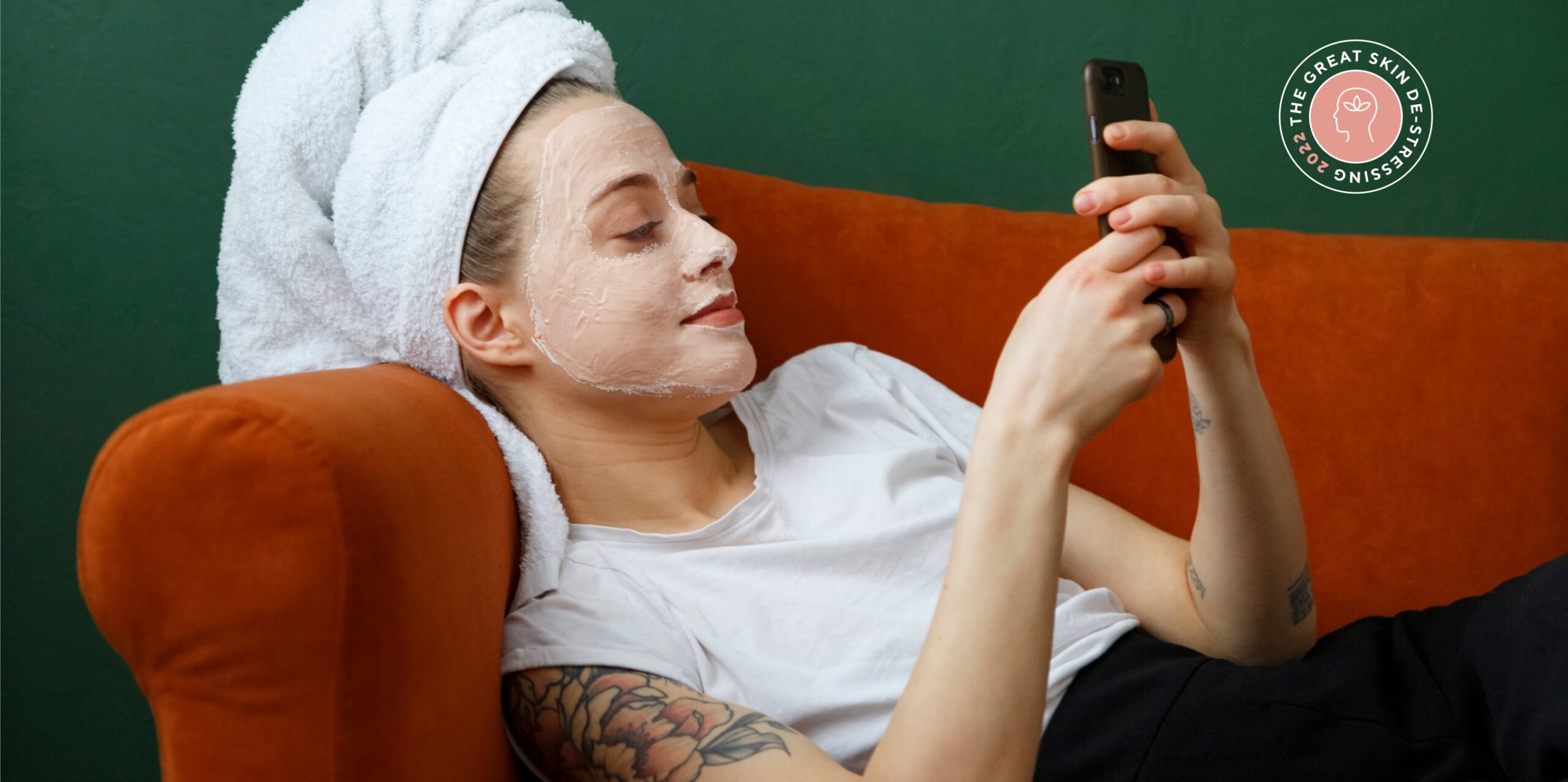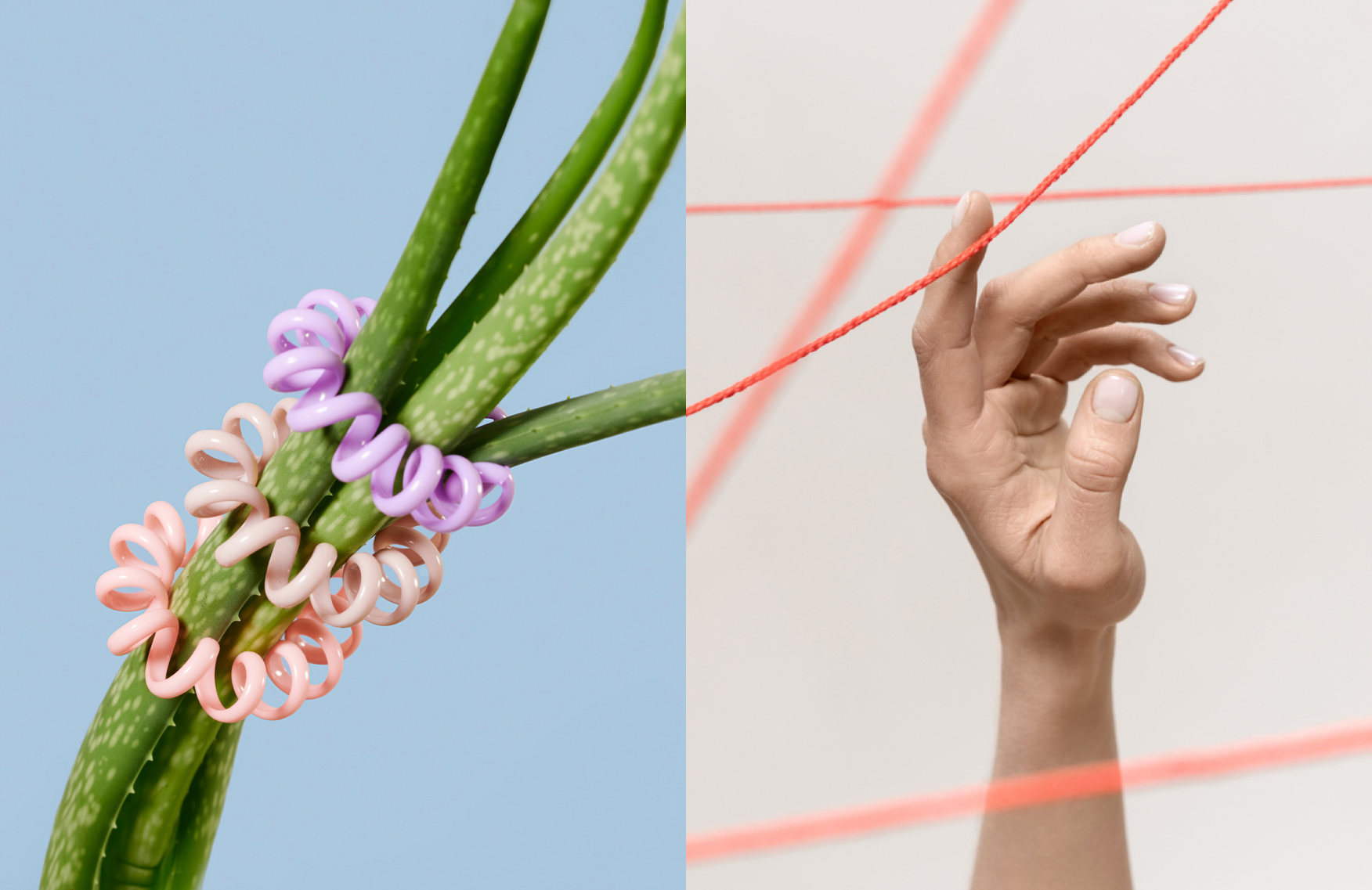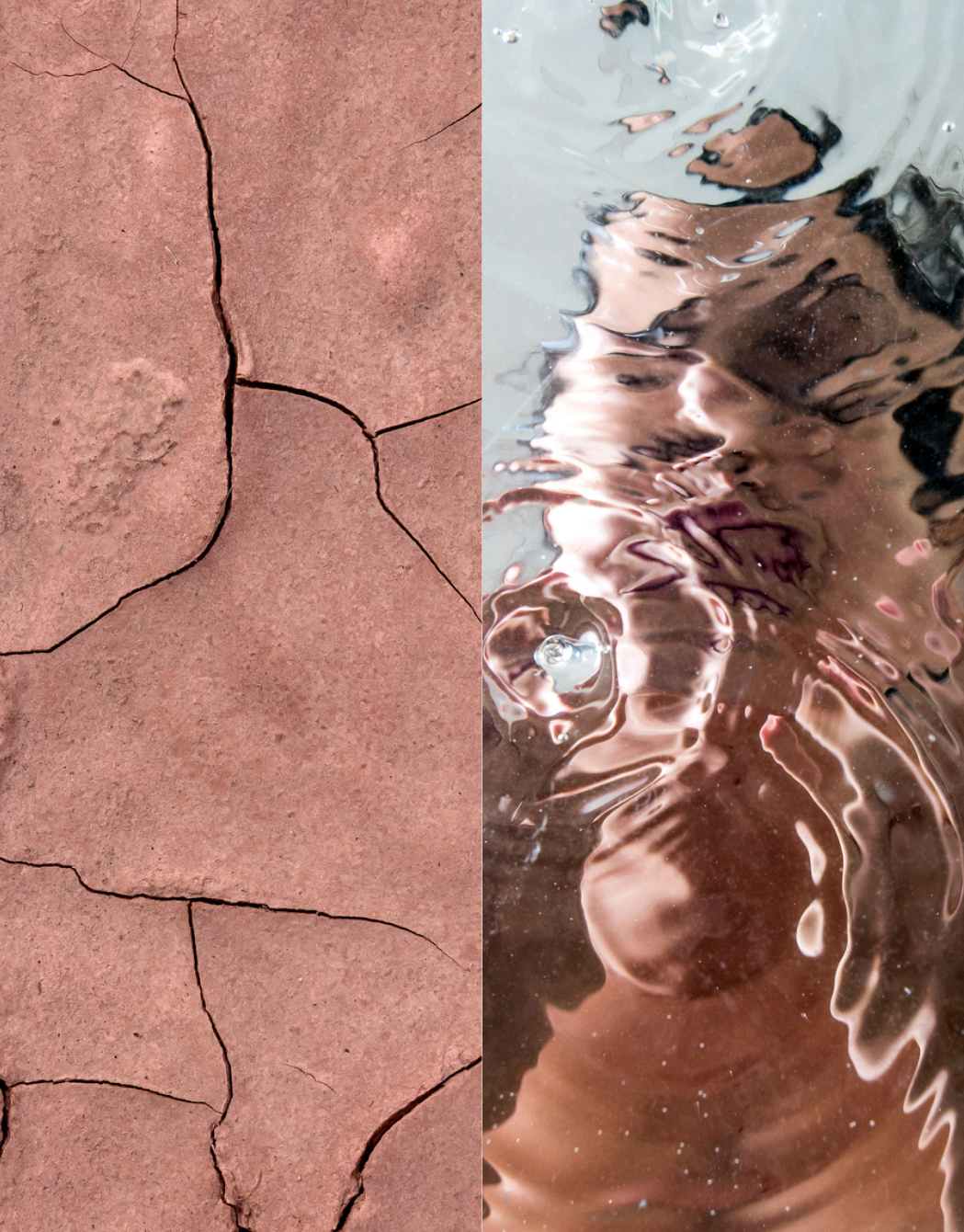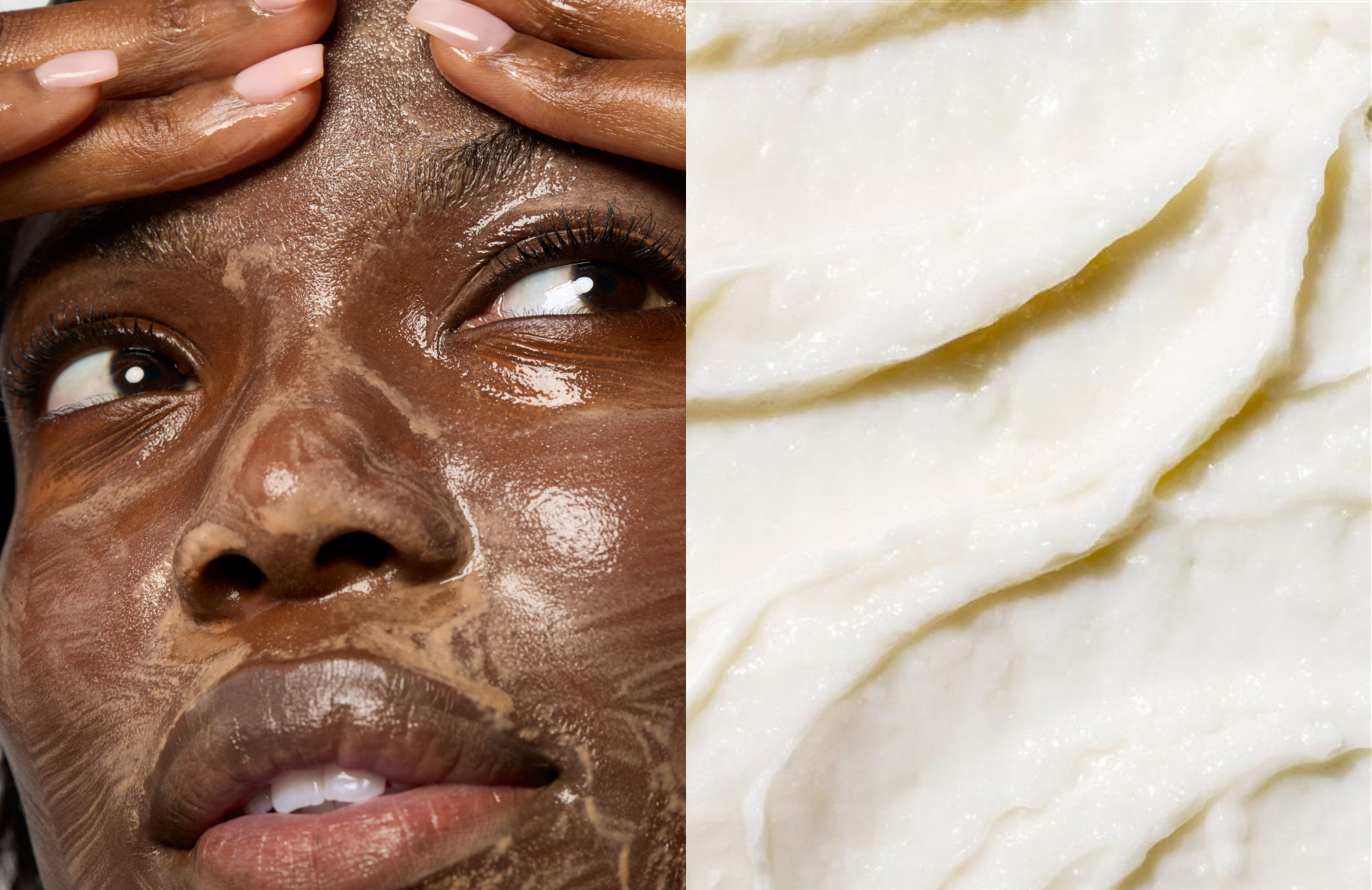The great skin de-stressing of 2022: A rising DermTok star shares how NOT to get skincare-scammed on social media

Thanks to social media, we have any information we could ever ask for at our fingertips. And when it comes to skincare, there’s no shortage of experts giving their hot takes on everything from ingredients to formulations. The problem? Surprise, you can’t believe everything you read online. Inaccuracies can lead to some dangerous repercussions, so we tapped popular TikTok derm Mark Strom, MD, FAAD (who received his medical degree from Northwestern and completed a residency at Columbia), to help us navigate the overwhelming world of skincare on social, including what to look for, how to tell if someone’s legit and how to curate your follow list.
Mark Strom, MD, FAAD
Social media is rife with people doling out skincare advice. How do you know who is legit?
Mark Strom: It’s hard! I get my information from a wide variety of content creators—everyone from dermatologists, cosmetic chemists and product formulators, to influencers who don’t have a formal qualification but rather a unique point of view.
For dermatologists, the first thing to look for is if the person giving the advice has a medical degree or board certification. If they do, they’ll have “FAAD” after their title. That stands for Fellow of the American Academy of Dermatology, and means they got their undergraduate degree, went to medical school, did a certified dermatologist residency and passed their dermatology boards.
There are a lot of derms still in training giving advice on social media. I don’t think that’s a bad thing—some share great information—but it’s good to keep in mind that many are still in training and you might want to double-check the advice they’re giving.
When it comes to new product ingredients or formulations, I get a lot of valuable information from cosmetic chemists and product formulators, because they have formal training and concrete knowledge about why ingredients might be in products, the process of making them, etc.
If someone has a lot of followers, can you trust their skincare advice?
Strom: Not always. Just because someone has a lot of followers doesn’t necessarily mean they have a good understanding of skincare or know what they’re talking about. They could have built their following around something unrelated to skin, and then decided to pivot to skincare without knowing anything about it.
Conversely, if someone doesn’t have a degree or qualification, it doesn’t mean they don’t know what they’re talking about. I’ve seen well-researched content from people who don’t have the qualification, but they consult with relevant experts to put out thoughtful, accurate content.
What if they say they are a doctor or a derm?
Strom: Look for that FAAD credential that I mentioned earlier. That’s a sign that someone’s gone through the rigorous process of becoming certified. Technically, you can say whatever you want on social, but people who have FAAD on their name are generally not lying about who they are.
When it comes to other doctors and physicians, remember that not everyone who calls themselves a doctor on social media is a physician— they could have a doctorate in something else. But even among physicians I would say those who didn’t do a residency or fellowship related to aesthetics (facial plastic surgery, dermatology) have little to no training in things like skin disease or cosmetics. So again, try to look for that FAAD to make sure you’re getting information from someone who has that standardized training.
Also note it’s not the same in every country. This mostly applies to people who did their medical training in the U.S. In other countries, like the UK or Europe, I personally don’t have a great way to vet them because I don’t have an understanding how other countries do their training. In that respect, I tend to follow other derms in the U.S.
What are some actionable, practical tips for not getting skincare-scammed on social? For example, should I Google these so-called experts and see if their experience is legit? Anything else?
Strom: Being a board-certified derm doesn’t automatically make what someone says accurate or foolproof. In the past, I’ve said and believed things that I ultimately had to correct because it turns out we didn’t have all the information at the time. Generally, what I look for is people who are well-regarded by other dermatologists and chemists, people who make well-researched posts and have citations to back up their claims.
If you see someone on social media making a claim that seems too ridiculous to be true, you should take it with a grain of salt. For example, on TikTok, when I see people saying that popular skincare brands are toxic and give you cancer, it’s a huge red flag to not take anything that person says seriously, because in general, a well-regarded skincare brand isn’t poisoning us—that’s not a very good business model! Don’t put too much trust in any one person and always verify the information with outside sources.
And remember that it’s possible to twist good data to fit a narrative, which isn’t always a reflection of what the underlying data shows. Approach social media content with the same critical lens you’d use for any other form of journalism.
What are some of the potential dangers of taking skincare advice from someone who isn’t authorized to be giving It?
Strom: I spend a ton of time on Instagram and TikTok, so I see a lot of bad advice given. Some of it ranges from not necessarily dangerous, but misinformed. However, some does borderline on being dangerous.
In the misinformed camp, I’ve seen things like the idea that people with deeper skin tones can’t use certain skincare ingredients like hydroquinone or glycolic acid, which is not true. Someone who is not a dermatologist claiming people can’t use that because it’s dangerous makes me scratch my head, since I know for a fact these ingredients are safe for people of all skin tones.
One other thing I’ve seen recently that’s misinformed, but not dangerous is the idea of chlorophyll doing amazing things for your skin—the reality is the data doesn’t back that up.
The dangerous things I’ve seen on TikTok are people doing DIY at-home chemical peels, like mixing up aspirin and lemon juice and putting it on their face—that is not safe. These ingredients are not meant to be put on your face. I’ve also seen people order office-strength chemical peels to do at home and teaching others how to inject Botox themselves. These are all 100% not safe, and if you see someone on social suggesting this, run!
What should I look out for when trying to follow skincare accounts with the most accurate advice?
Strom: Look out for incredulous statements that seem too ridiculous to be true; nine times out of 10 they are too ridiculous to be true. Skincare is full of nuance; a lot of people have different goals with their skincare and not everyone’s skin is the same. If the content someone puts out is all blanket statements, like “you must use this,” “you can’t do this,” “that’s ruining your skin”, etc. —that’s a red flag.
Ensure the person is qualified to give the advice. Skincare advice should come from a dermatologist, product/formula advice from a cosmetic chemist.
Let’s talk product recommendations. How can I tell if someone REALLY believes in a product, or if they’re just saying they do because they’re being paid to?
Strom: I can’t speak for everyone, but I do mix in some sponsored content with my normal content. I only create sponsored content for products I’ve tried, believe in their quality and that they’re good for a lot of people. I turn down more than I accept because it’d be unethical for me to endorse something I don’t believe in, or think is a bad product. My audience values my honesty and I value it too much to risk ruining it for the payout from a product endorsement.
I have seen content on TikTok from influencers who didn’t disclose that it was a campaign—I only knew because I’d been approached by the same brand and turned it down. It’s unethical and illegal, but things like that are under a lot more scrutiny recently. Look for things like #ad #sponsored at the end of the post.
When it comes down to it, is it really possible to get legit derm advice on social media?
Strom: People tend to ask things that are way too personalized for a good answer on social media. We don’t know the person’s medical history or skin type, so to give an answer would be unethical and harmful to the person asking. So I always shy away from that.
There’s good advice given by people on social but I always like to remind people it’s not information that’s individualized for any one person. I can put the information out there, but only the viewer and their physician or dermatologist can decide whether or not they can incorporate that into their own practice.
Lastly, the sheer amount of people claiming to be “skinfluencers”on social is overwhelming and stressful. How can someone curate follows down to the the most informative, fact-based skin experts?
Strom: It can be stressful. That’s something I hear from my friends and family— that it’s hard to know who to trust. I don’t think it’s the best idea to narrow it down to 1-2 people who you fully trust and take all their advice at face value, or to follow everyone who calls themselves an expert.
I think the answer to this is somewhere in the middle: Limit who you get content from to a fair amount of well-trusted people who are well-regarded by others, like derms, cosmetic chemists and someone who has the skin type as you (so they can speak to how well products work for them.) And if you’re still unsure Google them! This can always be a great way to vet your sources.
The views expressed in this article do not necessarily represent the views of Murad, and are for informational purposes only, even if the advice of physicians and medical practitioners are included. This article is not a substitute for professional medical advice, diagnosis or treatment, and should not be considered specific medical advice.
Read more Q&As in our series, “The great skin de-stressing of 2022”:
“Why cosmetic acupuncture should be on your self-care radar,” featuring licensed cosmetic acupuncturist and herbalist Daphne Lim
“Checking in on mental health before a cosmetic procedure? One of L.A.’s top RN’s mission to transform the industry,” featuring celeb-sought medical aesthetic provider and registered nurse Vanessa Lee
“Meet the skinfluencer behind the #freethepimple movement,” featuring acne-positive influencer Lou Northcote


